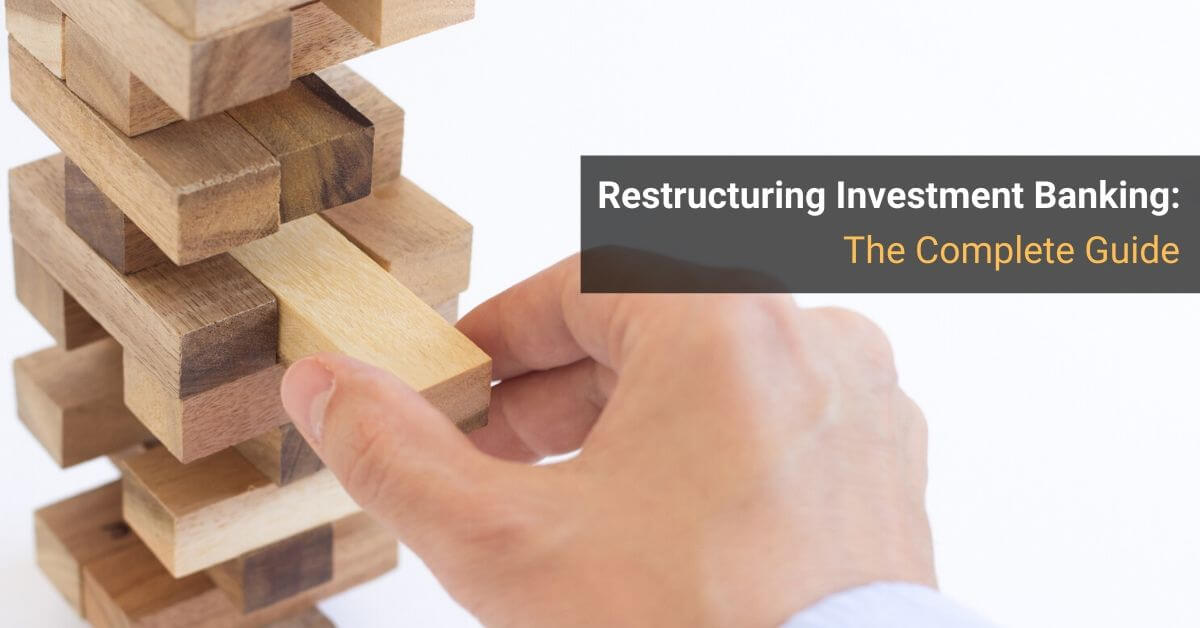

Finance
How To Cancel A Deceased Persons Credit Card
Published: November 7, 2023
Learn how to cancel a deceased person's credit card and manage their finances effectively. Get expert advice and practical tips on handling financial matters after a loved one has passed away.
(Many of the links in this article redirect to a specific reviewed product. Your purchase of these products through affiliate links helps to generate commission for LiveWell, at no extra cost. Learn more)
Table of Contents
- Introduction
- Understanding the Importance of Cancelling a Deceased Person’s Credit Card
- Collecting Essential Documents and Information
- Contacting the Credit Card Company
- Providing Necessary Documentation
- Notifying Credit Bureaus
- Settling Outstanding Balances
- Reviewing Other Accounts and Services
- Closing the Deceased Person’s Credit Card Account
- Conclusion
Introduction
When a loved one passes away, dealing with their financial affairs can be a daunting and emotional task. One important aspect to consider is canceling their credit cards to prevent any unauthorized use or fraudulent activity. Cancelling a deceased person’s credit card is not only essential for protecting their estate, but it also provides peace of mind for the family.
However, navigating the process of canceling a deceased person’s credit card can be overwhelming, especially during such a difficult time. There are important steps to follow, documentation to gather, and contacts to reach out to ensure a smooth and secure cancellation process.
In this guide, we will provide you with a comprehensive overview of how to cancel a deceased person’s credit card. We will outline the necessary steps to take, the documents you will need, and how to handle outstanding balances and other related accounts.
It’s important to note that the specific procedures for canceling a credit card may vary depending on the credit card issuer and the jurisdiction in which you reside. However, this guide will serve as a general roadmap to help you through the process and navigate any additional requirements specific to your situation.
While dealing with the financial aspects of a loved one’s passing can be challenging, canceling their credit cards is a crucial step to protect their estate and prevent any further financial complications. By following the steps outlined in this guide, you can ensure that you’re taking the necessary measures to safeguard their legacy.
Understanding the Importance of Cancelling a Deceased Person’s Credit Card
Canceling a deceased person’s credit card is a crucial step in managing their financial affairs after their passing. There are several important reasons why it’s essential to take immediate action in canceling the credit card:
- Preventing Fraudulent Activity: Leaving a deceased person’s credit card active can expose their estate to the risk of unauthorized use. Identity theft and fraudulent charges can cause significant financial damage, and canceling the credit card minimizes the chances of such incidents.
- Protecting the Estate: Canceling the credit card is a responsible measure to protect the financial well-being of the deceased person’s estate. By closing the credit card account, you can also prevent any new charges or fees from accruing.
- Minimizing Emotional Distress: Dealing with the financial aspects of a loved one’s passing can be emotionally draining. Cancelling their credit card allows you to proactively address this matter, reducing the potential stress and burden over time.
- Complying with Legal Obligations: Canceling the credit card is often a legal requirement to fulfill your responsibilities as the executor or administrator of the deceased person’s estate. Failing to cancel the credit card can lead to complications in settling their financial affairs.
- Resolving Outstanding Balances: When a person passes away, any outstanding balances on their credit card become part of their estate. By canceling the credit card, you can begin the process of settling these balances and ensuring that all debts are properly managed.
Understanding the importance of canceling a deceased person’s credit card is crucial in taking proactive steps to protect their financial legacy. By canceling the credit card promptly, you can safeguard the estate, prevent fraudulent activity, and reduce the emotional burden on the family. In the following sections, we will outline the necessary steps and procedures to help you navigate the process of canceling a deceased person’s credit card effectively.
Collecting Essential Documents and Information
Before contacting the credit card company to cancel a deceased person’s credit card, it’s important to gather all the necessary documents and information. This ensures a smoother process and helps you provide the required details to the credit card issuer. Here are some essential documents and information you should collect:
- Death Certificate: Obtain multiple certified copies of the deceased person’s death certificate. You will likely need to provide this document as proof of their passing to the credit card company.
- Identification Documents: Gather the deceased person’s identification documents, such as their driver’s license, passport, or Social Security card. These may be required to verify their identity and establish your authority as the executor or administrator of the estate.
- Credit Card Information: Collect all relevant information about the credit card, including the account number, cardholder’s name, and the credit card issuer’s contact information. Having these details readily available will expedite the cancellation process.
- Executor or Administrator Documentation: If you are acting as the executor or administrator of the deceased person’s estate, gather any legal documents appointing you to this role. This may include letters testamentary, letters of administration, or a court order granting you authority over the estate.
- Power of Attorney Documentation (If Applicable): In the event that there is a power of attorney document granting someone authorization to handle the deceased person’s financial affairs, make sure to gather a copy of this document.
- Other Relevant Documents: Depending on the credit card issuer and their specific requirements, you may need additional documents such as the deceased person’s will, estate tax identification number, or probate documents. Review the credit card company’s policies or contact their customer service to determine any specific documentation needs.
By collecting these essential documents and information beforehand, you will be better prepared to provide the necessary details to the credit card company when canceling the deceased person’s credit card. This proactive step saves time and ensures a smoother process as you navigate the next steps of cancelling the credit card account.
Contacting the Credit Card Company
Once you have gathered all the necessary documents and information, it’s time to contact the credit card company to initiate the cancellation process. Here are the steps to follow when reaching out to the credit card issuer:
- Locate the Customer Service Contact Information: Find the contact information for the credit card company’s customer service department. This information can usually be found on the credit card statement or on the back of the credit card itself.
- Prepare the Required Identifying Information: When you contact the customer service representative, be prepared to provide the necessary information to verify your identity and your relationship to the deceased person. This may include the deceased person’s account number, full name, date of birth, and your own identification as the executor or administrator.
- Inform the Representative About the Deceased Person: Clearly state that the credit cardholder has passed away and that you are contacting the company to cancel their credit card. Be prepared to provide the date of passing and a brief explanation of your relationship to the deceased person.
- Request the Credit Card Cancellation: Clearly state that you want to cancel the deceased person’s credit card. The customer service representative will guide you through the cancellation process, which may involve additional steps or verification procedures.
- Ask About Any Outstanding Balances: Inquire about any outstanding balances on the credit card account. If there are any unpaid charges, confirm how they will be handled and what steps need to be taken to settle the debt.
- Take Note of Important Information: During the conversation, make sure to record the date and time of the call, the name of the representative you spoke with, and any reference numbers provided. This information will be useful for future reference or in case of any issues that may arise.
When contacting the credit card company, it’s important to remain patient, courteous, and persistent. Understand that the representative’s primary goal is to assist you, but they may need to follow specific procedures and guidelines to process the cancellation. Remember to treat them with respect and provide all the necessary information to expedite the cancellation process.
Once you have successfully contacted the credit card company and initiated the cancellation, you can proceed to the next steps in finalizing the cancellation and securing the deceased person’s financial matters.
Providing Necessary Documentation
When canceling a deceased person’s credit card, you may be required to provide certain documentation to the credit card company. These documents serve as proof of the deceased person’s passing and your authority to act on their behalf. Here are some common documents you may need to provide:
- Death Certificate: The death certificate is a vital document that confirms the deceased person’s passing. You will likely need to submit multiple certified copies of the death certificate to the credit card company as proof. You can obtain certified copies from the vital records office in the jurisdiction where the person passed away.
- Executor or Administrator Documents: If you are the appointed executor or administrator of the deceased person’s estate, you may need to provide legal documents to establish your authority. These documents can include letters testamentary, letters of administration, or a court order granting you the authority to handle the deceased person’s financial affairs.
- Power of Attorney Documents (If Applicable): If there is a power of attorney document in place granting someone authorization to handle the deceased person’s financial matters, you may need to provide a copy of this document to the credit card company. This is typically required when the deceased person had granted someone power of attorney before their passing.
- Identification Documents: You may be asked to provide identification documents, such as your own driver’s license or passport, to verify your identity and your relationship to the deceased person.
- Additional Documentation: Depending on the credit card company’s policies, they may request additional documentation to complete the cancellation process. This could include the deceased person’s will, estate tax identification number, or probate documents. Review the credit card company’s requirements or contact their customer service for any specific document needs.
Ensure that you gather all the required documentation before contacting the credit card company to cancel the deceased person’s credit card. Submitting the necessary documents promptly will help expedite the cancellation process. Keep copies of all the documents you provide, as you may need them for future reference or to settle any outstanding matters related to the deceased person’s financial affairs.
By providing the necessary documentation, you ensure that the credit card company has the required proof to process the cancellation and update their records accordingly. This step is crucial in finalizing the cancellation and resolving any financial obligations associated with the deceased person’s credit card account.
Notifying Credit Bureaus
In addition to canceling the deceased person’s credit card with the credit card company, it is important to notify the credit bureaus about their passing. Notifying the credit bureaus helps protect the deceased person’s credit report and prevents potential identity theft. Here are the steps to follow when notifying the credit bureaus:
- Obtain Multiple Copies of the Death Certificate: As mentioned earlier, you will need multiple certified copies of the death certificate. These copies will be necessary when notifying the credit bureaus, as they will require proof of the deceased person’s passing.
- Contact the Credit Reporting Agencies: There are three major credit bureaus in the United States: Equifax, Experian, and TransUnion. Contact each credit bureau by phone or through their official website to notify them of the deceased person’s passing.
- Provide the Necessary Information: When contacting the credit bureaus, be prepared to provide the deceased person’s full name, social security number, date of birth, and date of passing. You may also need to provide your own contact information and relationship to the deceased person.
- Submit the Required Documentation: The credit bureaus typically require proof of the deceased person’s passing, which is where the certified copies of the death certificate come in. Follow their instructions to submit the necessary documentation, either by uploading it on their website or mailing it to them.
- Request a Deceased Indicator: When notifying the credit bureaus, request that a “deceased indicator” be placed on the deceased person’s credit report. This indicator helps prevent fraudulent activity and ensures that the deceased person’s credit report is not accessed or used inappropriately.
By notifying the credit bureaus about the deceased person’s passing and requesting a deceased indicator, you help protect their credit history and deter any potential identity theft. It is also a responsible step to take to ensure that their credit report remains accurate and secure.
Keep records of the communication with the credit bureaus, including the date, time, and details of the notification. This documentation will be valuable in case any issues arise or if further action is needed regarding the deceased person’s credit report.
Notifying the credit bureaus is an essential part of managing the deceased person’s financial affairs. By proactively informing them of the passing, you contribute to maintaining the integrity of their credit history and minimizing the risk of fraudulent activity.
Settling Outstanding Balances
When a person passes away, any outstanding balances on their credit card become part of their estate. Settling these balances is an important step in managing the deceased person’s financial affairs. Here are the steps to follow when it comes to settling outstanding balances:
- Review the Deceased Person’s Statements: Gather the deceased person’s credit card statements or access them online to review the outstanding balances. Take note of any recent charges, fees, or interest that may have accrued since their passing.
- Notify the Credit Card Company: Contact the credit card company that issued the card and inform them about the deceased person’s passing. Inquire about the outstanding balances and request a final statement that includes all charges up until the date of cancellation.
- Dispute Any Unauthorized Charges: While reviewing the statements, if you come across any unauthorized charges or suspicious activity, contact the credit card company immediately to dispute those charges. Provide any necessary documentation or evidence to support your claim.
- Consult with an Attorney or Financial Advisor: If the deceased person’s estate is complex or if there are significant outstanding balances, it may be wise to seek guidance from an attorney or financial advisor. They can provide valuable advice on settling the balances, negotiating with creditors, and managing any legal aspects related to the estate.
- Pay Off the Outstanding Balances: Once you have received the final statement from the credit card company, determine the total outstanding balance. If there are sufficient funds in the deceased person’s estate, use those funds to pay off the debt. If not, consult with a legal professional to understand the priority of debt repayment and how to handle any potential insufficiencies.
- Keep Records of Payments: Maintain thorough records of all payments made to settle the outstanding balances. This documentation will be important for the estate’s financial records and may be required in case of any disputes or questions in the future.
Settling the outstanding balances on the deceased person’s credit card is crucial to ensure that their financial affairs are properly managed. It is important to approach this process with care, paying close attention to the details of the statements and seeking professional guidance if needed.
By taking the necessary steps to settle outstanding balances, you can ensure that the deceased person’s estate is responsibly managed and that their financial obligations are appropriately addressed. This step contributes to the overall financial well-being of the estate and helps bring closure to their financial affairs.
Reviewing Other Accounts and Services
When canceling a deceased person’s credit card, it’s important to review their other accounts and services to ensure that their financial matters are properly addressed. Here are some key areas to consider:
- Bank Accounts: Review the deceased person’s bank accounts and notify the bank of their passing. Close any active accounts and transfer funds as needed. If the deceased person had joint accounts, consult with the bank on the necessary steps to update ownership or remove the deceased individual’s name.
- Utilities and Subscriptions: Assess the deceased person’s utility bills, such as electricity, water, and gas. Contact the respective service providers to cancel or transfer the accounts. Additionally, review any subscriptions or recurring payments, such as cable or streaming services, and cancel or transfer those as well.
- Insurance Policies: Evaluate the deceased person’s insurance policies, including life insurance, health insurance, and auto insurance. Notify the insurance companies of their passing and inquire about any necessary updates or cancellations. Additionally, review any beneficiaries listed on life insurance policies and make changes as required.
- Investment and Retirement Accounts: Take inventory of the deceased person’s investment and retirement accounts. Contact the financial institutions managing these accounts to inform them about their passing and determine the necessary steps to transfer or close the accounts. Consult with a financial advisor or estate planner for guidance on handling these accounts effectively.
- Digital and Online Accounts: Nowadays, many individuals have digital and online accounts, including email, social media, and online shopping platforms. Take inventory of the deceased person’s digital presence and consider options for managing or memorializing these accounts. Some platforms have specific procedures for dealing with accounts of deceased individuals, so reach out to the respective companies for guidance.
- Government Benefits and Services: If the deceased person was receiving any government benefits, such as Social Security or Medicare, notify the respective agencies of their passing. They will guide you through the necessary steps to stop the benefits and address any related matters.
Reviewing and addressing these other accounts and services is crucial to ensure that all aspects of the deceased person’s financial affairs are properly managed. It may be helpful to create a checklist to keep track of the accounts that need to be reviewed and the actions that need to be taken.
As you navigate these various accounts and services, stay organized by keeping records of communications, documentation, and any changes made. This will help minimize confusion and ensure that all necessary steps are taken to address the deceased person’s financial matters effectively.
Remember, seeking professional advice from attorneys, financial advisors, or estate planners can provide valuable guidance throughout this process, particularly when dealing with complex accounts or legal considerations.
Closing the Deceased Person’s Credit Card Account
Once you have taken care of the necessary steps to cancel a deceased person’s credit card, it’s important to proceed with closing the credit card account itself. Here is a guide on how to complete the process of closing the deceased person’s credit card account:
- Confirm the Cancellation: Ensure that you have successfully canceled the credit card by contacting the credit card company and verifying that the cancellation request has been processed.
- Pay Any Remaining Balances: If there are any outstanding balances on the credit card, make sure to settle them promptly. Refer to the final statement provided by the credit card company to determine the exact amount owed. You can use funds from the deceased person’s estate, if available, to pay off the remaining balance.
- Cut Up and Dispose of the Physical Card: Safely cut up the physical credit card to prevent any potential misuse. Disposing of the pieces in separate trash bags can add an extra layer of security. Alternatively, some credit card companies may have instructions for safely returning the card to them.
- Send Written Confirmation: In addition to confirming the cancellation through phone or online communication, it’s recommended to send written confirmation of the credit card cancellation via certified mail. Keep a copy of this confirmation for your records.
- Monitor the Account: Even after the cancellation, it’s important to monitor the credit card account for any unauthorized charges or fees that may appear. Regularly check the account statements or online portal for any suspicious activity. If anything seems irregular, contact the credit card company immediately.
- Inform Authorized Users: If there were any authorized users on the credit card, notify them that the deceased person’s credit card account has been closed. This will help prevent any confusion or attempts to use the card after its cancellation.
By following these steps, you can ensure that the deceased person’s credit card account is successfully closed, reducing the risk of any unauthorized activity or further financial complications.
Remember to keep detailed records of all communications, statements, and confirmations related to the closure of the credit card account. These records serve as important documentation and safeguard against potential disputes or issues that may arise in the future.
Closing the deceased person’s credit card account is an essential final step in managing their financial affairs. By completing this process, you bring a sense of closure to their financial obligations and protect their estate from potential fraudulent activity or unauthorized use of the credit card.
Conclusion
Cancelling a deceased person’s credit card is a critical step in managing their financial affairs and protecting their estate. By following the proper procedures and taking the necessary steps, you can ensure that the credit card is cancelled, outstanding balances are settled, and the deceased person’s financial matters are appropriately addressed.
Understanding the importance of canceling a deceased person’s credit card, gathering essential documents and information, and notifying the credit card company and credit bureaus are vital components of the process. Settling outstanding balances and reviewing other accounts and services associated with the deceased person’s name further contribute to their financial closure.
Throughout this journey, it’s crucial to maintain a meticulous record of all communications, documents, and actions taken. This will not only assist in managing the deceased person’s financial affairs but may also be necessary in case of any future inquiries or disputes regarding their accounts.
Dealing with the financial aftermath of a loved one’s passing can be challenging, but by adhering to the steps outlined in this guide, you can navigate the process of canceling a deceased person’s credit card with confidence and ensure that their financial legacy is secured.
Remember, seeking professional advice from attorneys, financial advisors, or estate planners can provide invaluable assistance, particularly in situations involving complex estates or specific legal considerations.
By taking these necessary steps, you are providing peace of mind for yourself and your family, knowing that you have acted responsibly to protect the deceased person’s financial well-being and honor their memory.














